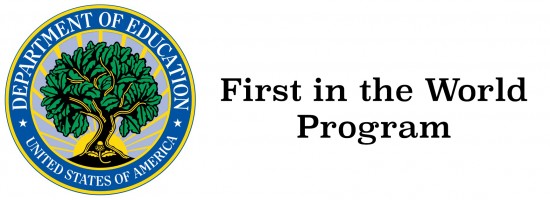
Delta State University announced exciting news today after being selected as one of only 24 universities across the nation for the U. S. Department of Education’s new First in the World grant.
To drive innovations in higher education that increase college completion, value and affordability, the Education Department today awarded $75 million to the 24 colleges and universities receiving FITW grants.
The focus of this $1,660,957 grant will be to increase access and completion for underrepresented, underprepared or low-income students. Delta State was the only Mississippi institution to be awarded this competitive opportunity.
The FITW program, administered by the Fund for the Improvement of Postsecondary Education, provides grants to institutions of higher education to help implement innovative strategies and practices for improving student completion, and focuses on making college more affordable for students and families. This program is a part of an ambitious plan outlined by President Barack Obama in August of 2013 to improve value and affordability in postsecondary education.
“The First in the World grant competition is a key part of President Obama’s agenda to foster innovative ideas that help keep college affordable, increase quality and improve educational outcomes for our students,” said U.S. Secretary of Education Arne Duncan in a DOE press release. “The department is proud to support the wide range of innovation at colleges and universities across the nation that can dramatically enhance student outcomes.”
Delta State President William N. LaForge could not be more pleased by Delta State’s selection, going up against nearly 500 applications.
“This is a great opportunity for us and we’re very appreciative of the funding to assist us in addressing not only the issue of institutional retention, but more personally, providing extra assistance to students who need academic support,” said LaForge.
“It will allow us to bolster our offerings at the Student Success Center and make more services available to students who find themselves in some form of academic need,” added LaForge. “This grant clearly underpins one of our chief missions and goals right now.”
The funding will cultivate the Okra Scholars project with two main goals: develop and demonstrate a holistic and integrated student support approach to increase persistence to degree completion; and demonstrate effectiveness of the intervention strategies that are scalable and replicable.
The project will work with underprepared students from the Mississippi Delta with ACT scores between 17-21. According to Robin Boyles, director of Delta State’s Office of Institutional Grants, the majority of these students are underrepresented and/or low-income.
Boyles said that this is an extremely significant grant that will benefit the institution.
“The Okra Scholars project will allow us to have a real impact on student retention and completion, and we are thrilled to have been selected to receive this highly competitive grant,” said Boyles.
Christy Riddle, director of the Student Success Center, will serve as the project director. Dr. Jacqueline Craven, assistant professor of teacher education, will serve as the educational researcher and principal investigator for the project.
The Okra Scholars project will allow the Student Success Center to provide resources to assist these students in completing their program of study. Riddle is looking forward to a host of new opportunities to come out of the grant.
“This grant will tremendously increase Delta State’s capacity to assist the retention of at-risk students,” said Riddle. “We’re taking a three-pronged approach focusing on academic success, career development and cultural competency.”
President LaForge has been working closely with Dr. Charles McAdams, provost and vice president of Academic Affairs, to make a mark in the university’s retention challenges. The support from the Department of Education will help make a substantial impact.
“By creating our Okra Scholars program, this grant will help us to more directly focus academic support efforts on students from the Delta who need help the most,” said McAdams. “The goal is to increase retention and ultimately graduation rates of these students.
“What we learn from activities to help these students will ultimately help us to improve the graduation rates of all students on campus. This is another great program for Delta State.”
Assisting in the grant application process was Ellucian, Delta State’s contracted administrators of technology services. Ellucian provided expertise and technical assistance in developing the proposal.
Dr. Myrtis Tabb, Delta State’s associate vice president of finance and administration, provided the financial resources to secure the services of Ellucian in developing the proposal.
“I am pleased to provide leadership to the grants office,” said Tabb. “When additional resources to support technical assistance was identified early in the proposal development process, we were able to assist with that need. I am pleased that Delta State University had a competitive winning proposal and my compliments to the Delta State team that made it happen.”
Those leading the team included Robin Boyles and Christy Riddle. Planning team members included: David Hebert, Don Allan Mitchell, Chris Gaines, Dr. Jacqueline Craven, Christie Rocconi, Ethan Schmidt, Tanya K. McKinney, Temika M. Simmons, Vicki Webster, Rhonda Loper, Edwin Craft and Davlon Miller.
As the projects are further developed at each of the winning institutions, the DOE will convene for information sharing and the exchange of best practices to broaden the impact of their innovations on a wider student population.
Learn more about the First in the World program at http://www2.ed.gov/programs/fitw/index.html

